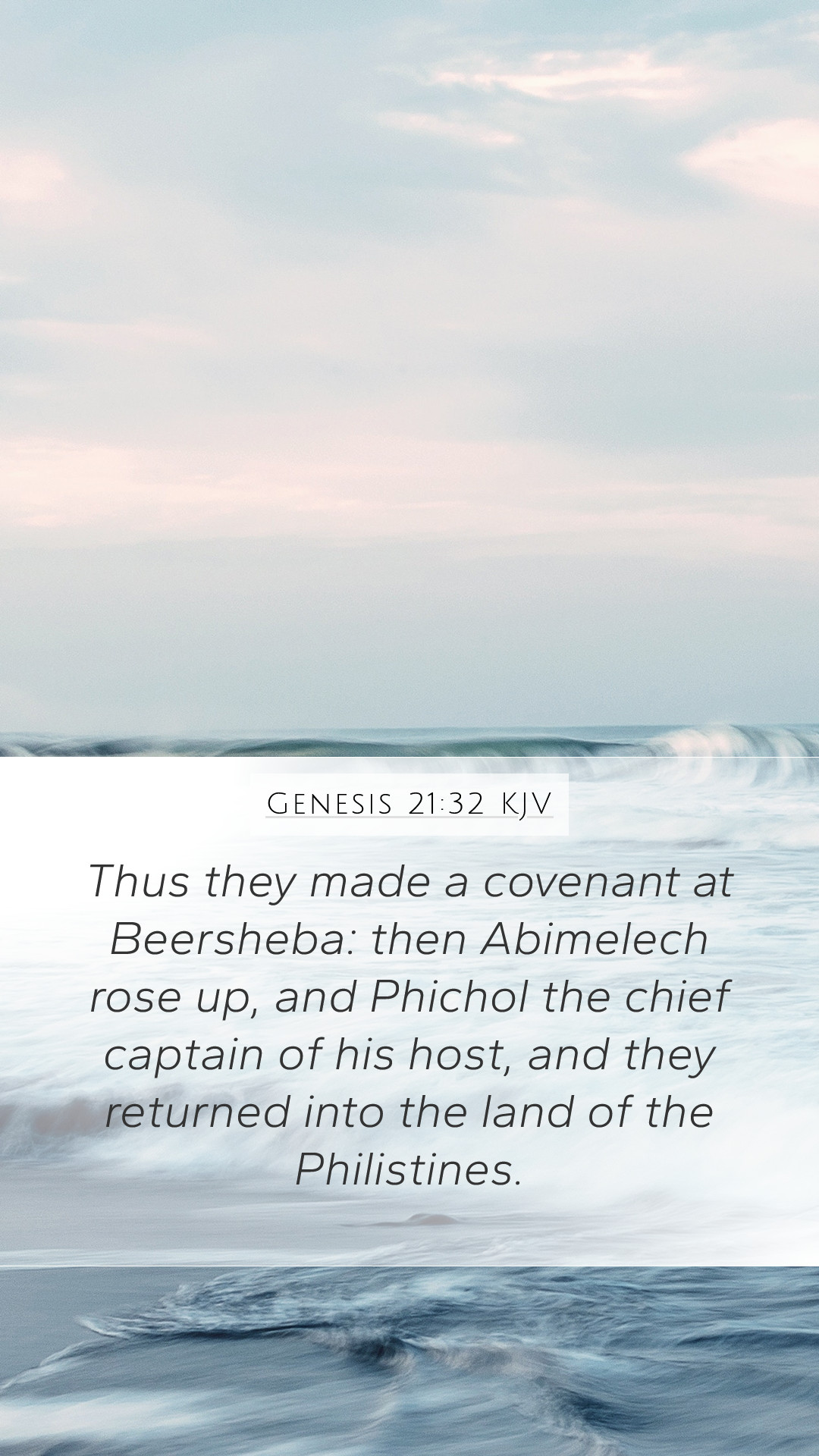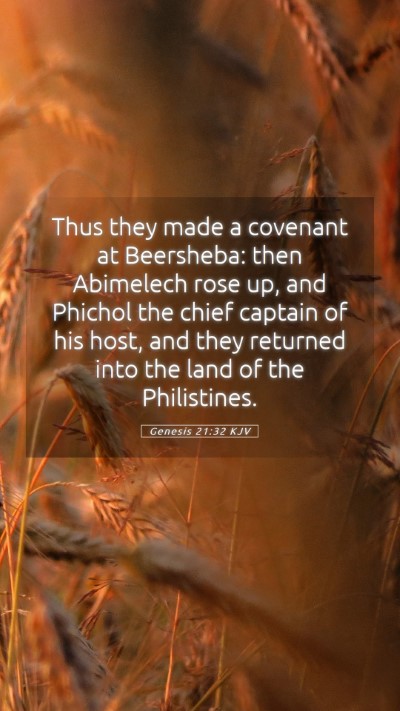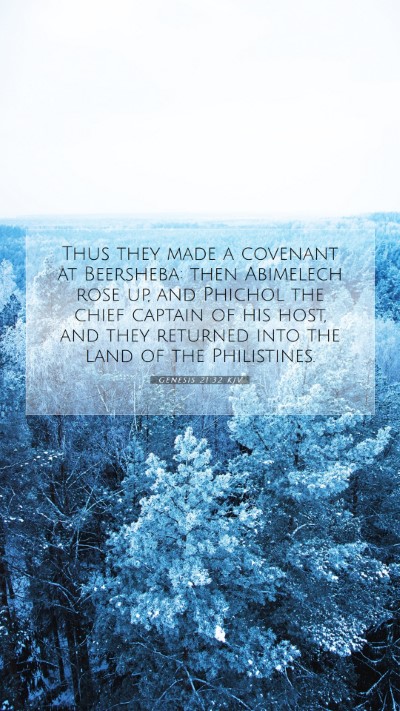Bible Verse Meaning: Genesis 21:32
This verse reads: "Thus they made a covenant at Beersheba. Then Abimelech rose with Phichol the chief captain of his host, and they returned into the land of the Philistines." (Genesis 21:32)
Summary and Interpretation:
Genesis 21:32 serves as a concluding statement regarding the covenant established between Abraham and Abimelech, the king of the Philistines. This moment marks a significant act of diplomacy and mutual respect. The establishment of a covenant indicates an intention towards peace and coexistence between two parties that previously had tensions.
-
Matthew Henry's Commentary:
Matthew Henry emphasizes the importance of covenants in the biblical narrative. In this instance, he notes that Abraham acted with integrity by addressing the wrong done to him concerning the well of water. The covenant symbolizes a commitment to peace and trust, serving as an example of resolving disputes.
-
Albert Barnes' Commentary:
Albert Barnes highlights the political and social ramifications of this covenant. He asserts that this agreement was illustrative of Abraham's reputation for righteousness and fairness. Barnes points out the historical significance of Beersheba as a location of worship and divine promise, representing a deep-seated relationship Abraham had with God.
-
Adam Clarke's Commentary:
Adam Clarke elaborates on the acts of both Abimelech and Abraham, suggesting that their interaction indicates a respect for God’s authority in their lives. Clarke views the agreement as not merely a political maneuver but a spiritually significant act that acknowledges God’s provision and protection over Abraham and his descendants.
Understanding Scripture: Key Themes in Genesis 21:32
Covenants in Scripture: Covenants are integral to biblical understanding and represent commitments made before God. Genesis 21:32 is a reminder of the seriousness and sanctity of promises made, especially in the context of inter-ethnic relations in the ancient world.
The Role of Place: The significance of Beersheba as a sacred site underscores the importance of geographical context in understanding biblical narratives. It reinforces the themes of promise and divine care evident in the life of Abraham.
Conflict Resolution: This passage illustrates how Abraham, through dialogue and covenant-making, sought resolution rather than conflict. The act of sealing a pact with Abimelech demonstrates wisdom in dealing with interpersonal conflicts, an applicable lesson for modern relationships.
Bible Cross References
- Genesis 14:21-24 - This earlier encounter with Abimelech sets the stage for understanding Abraham's interactions with the Philistine king.
- Genesis 26:26-31 - A similar covenant made by Isaac reinforces family dynamics and the continuity of God’s promises to Abraham’s descendants.
- Romans 12:18 - A New Testament insight on living peaceably and resolving conflicts aligns with the lessons drawn from Genesis 21:32.
Application in Modern Life
Genesis 21:32 encourages individuals to engage in peaceful resolutions and to seek common ground in interpersonal relationships. Understanding the weight of covenants can foster commitment and build trust among individuals and communities, reflecting biblical principles in everyday interactions.
Conclusion
The exploration of Genesis 21:32 provides valuable Bible verse commentary and scripture analysis that enriches our bible verse understanding. By studying this verse and its surrounding context, we gain insights into Abraham's life and the nature of covenants within biblical traditions. These lessons resonate through time, connecting us with the ethical and spiritual imperatives that guide human relationships.


